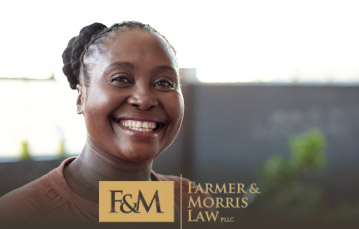
If you are an individual living in Polk County, NC, or have a small business in Polk County, NC, and wonder if filing for bankruptcy is right for you, our team can help. A Columbus bankruptcy lawyer from Farmer & Morris Law, PLLC can explain your options, determine which ones are right for you, and guide you through the filing process.
We understand this is a stressful and difficult time. We want to ensure you have all the information and support you need to make the right decisions for your family or business. With our bankruptcy team, you can learn how to fairly distribute your assets to your creditors and protect yourself from their efforts to collect.
Let Farmer & Morris Law, PLLC Help With Your Columbus, NC, Bankruptcy
There are pros and cons when filing for bankruptcy, and the path that is best for you will depend on your unique situation. Bankruptcy can relieve stress, stop harassment from creditors, and help you get back on solid financial ground. However, it can also affect interpersonal relationships, business dealings, future purchases, and more. Filing decisions should be made carefully.
When you work with our team on your Columbus, NC, bankruptcy, the Farmer & Morris Law, PLLC bankruptcy attorneys may be able to:
- Help you understand your options
- Explain the implications of each type of bankruptcy
- Carefully review the details of your finances and future needs
- Provide you with legal advice and recommendations
- Manage all paperwork and deadlines on your behalf
- Communicate with other parties on your behalf
We Provide Client-Focused Legal Services
We understand how stressful it can be when you are facing a dire financial situation. You want to trust that the law firm you hire prioritizes your bankruptcy case and has your financial future in mind. When you choose Farmer & Morris Law, PLLC, that’s what you’ll get. We can review your debt relief options and explain what we believe is the best approach for you and your family. Our legal team is dedicated to helping you get your financial freedom back on track.
Whether you are struggling with credit card debt, student loans, or other types of debt, we want to help. Our Columbus bankruptcy attorneys will never apply a one-size-fits-all approach to your situation. Instead, we will determine a legal strategy that suits your individual circumstances. We will also make ourselves available to answer your questions throughout the process.
Understanding the Different Types of Bankruptcy Filings
At Farmer & Morris Law, PLLC, our lawyers handle four kinds of bankruptcies:
In general, most of our clients pursue one of the bankruptcies most often used by individuals, families, and businesses, Chapter 7 or Chapter 13. Chapter 11 bankruptcy is also called a reorganization bankruptcy. It is frequently used by large companies that want to continue to operate. Chapter 12 bankruptcy is reserved for family farmers.
If you work with our team, your attorney will help you weigh your options and determine which best meets your needs. For example, many people who file for Chapter 7 bankruptcy do not have any non-exempt assets. This means that the bankruptcy discharges all their qualifying debts, and they can retain all their assets. However, this is not always the case.


Chapter 7 Bankruptcy Is Good if There Are Few Assets
Chapter 7 of the U.S. Bankruptcy Code provides one of the most utilized options, which is often best for those who:
- Have high levels of personal debt
- Struggle to make payments
- Do not have non-exempt assets or want to liquidate non-exempt assets
How It Works
When you get approved for a Chapter 7 bankruptcy, the process fully discharges your eligible debts. They are forgiven in full. Most people filing for Chapter 7 bankruptcy can exempt their assets, meaning they can keep them. Most people who qualify for a Chapter 7 bankruptcy do not have excessive non-exempt assets such as extra vehicles, a second home or a vacation home, stocks and other investments, and other high-value items.
The “Means Test”
Chapter 7 bankruptcy filing requires passing a means test. This determines if you have any disposable income for paying off your debts. First, our team calculates your income to see if it is lower than the median for other households of your size.
Next, we add your “allowable expenses,” including groceries, utilities, and other necessities. Most families who ask us to file on their behalf do not have much left over to pay off debts. Once we know you passed the means test, we prepare the forms and submit them to the court with other necessary paperwork.
The Filing Process
Your bankruptcy lawyer from Farmer & Morris Law, PLLC will guide you through the entire filing process. When you file for Chapter 7 bankruptcy, the court will implement an order called an automatic stay. This stops your creditors from attempting to collect their money from you.
Next, a bankruptcy trustee will hold a meeting, and your creditors can participate. This is called a 341 meeting or a creditors meeting. In this meeting, you may need to answer questions or provide details about your financial holdings, assets, and income, as well as other financial obligations. We will help you know what to expect throughout this process.
After the 341 meeting, you will likely be eligible for a Chapter 7 discharge. Your case will be formally closed a short time later.
Chapter 13 Bankruptcy Does Not Require a Means Test
Chapter 13 bankruptcy gives you the option of restructuring and repaying your debts instead of forgiving them. It is best for those who do not pass the means test but struggle to cover all their debts each month.
How It Works
Instead of liquidating your non-exempt assets, the bankruptcy process outlined in Chapter 13 allows you to reorganize your debts and potentially retain non-exempt assets. Essentially, it creates a financial restructuring plan overseen by a bankruptcy trustee. This plan will enable you to repay some or all your debt over several years.
Although it is primarily a repayment plan, many people find some forgiveness of debt that occurs as a part of the Chapter 13 process. However, Chapter 13 is a several-year commitment, and you may have to abide by financial limitations set by the trustee and Bankruptcy Court throughout the entire repayment period.
The Filing Process
Chapter 13 bankruptcy filing requires you to provide a lot of financial information, complete forms, and submit them to the court. We can handle this for you. The necessary documentation includes:
- Financial details about the debts you owe
- Documentation of your income
- Tax filings for the last four years from the Internal Revenue Service (IRS)
- Proof of ID and Social Security number
- An itemized list of your assets and expenses
- Proof of completion of a financial counseling course
Once approved, the court will assign a trustee to you. The trustee will review your case, work with creditors, and participate in the process of getting a repayment plan put in place. In Chapter 13, you must make regular monthly payments in this repayment plan to avoid additional financial concerns.


Learn More About Filing for Bankruptcy by Speaking with Our Team Today
You can learn more about your options for a Columbus, NC, bankruptcy today by speaking with a team member from Farmer & Morris Law, PLLC. Call us now to discuss your financial concerns and next steps.






